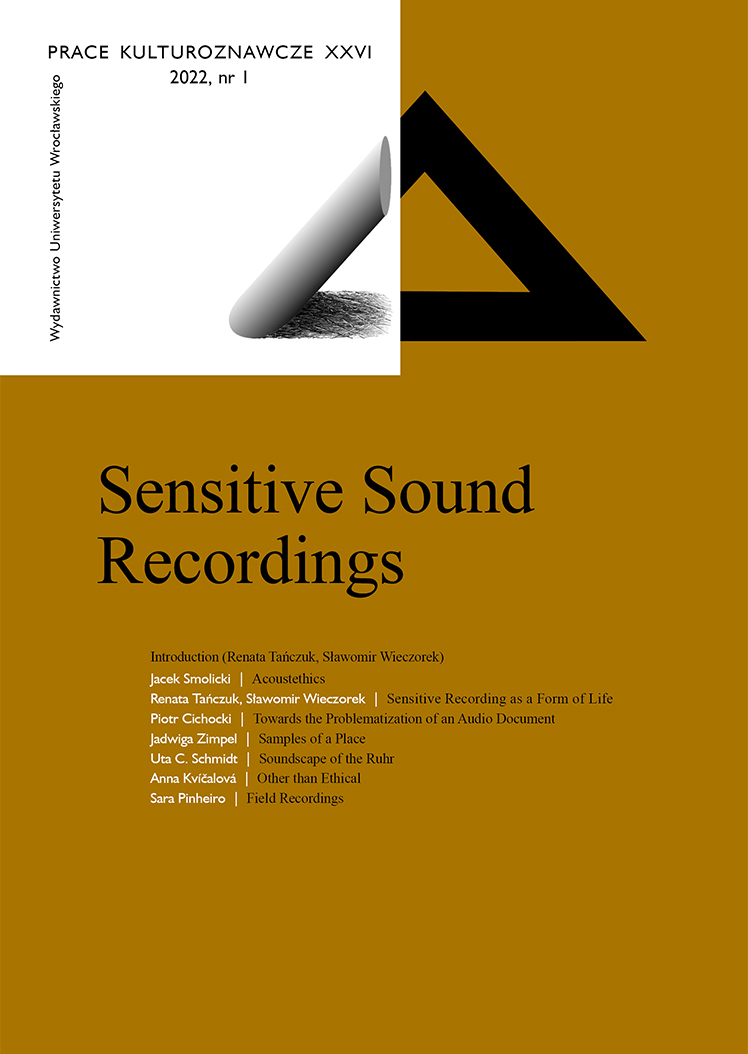

Articles

By analyzing the biography of Ryszard Siwiec’s recording of his message, we explore the function and changing identity of sensitive sound recordings, and the ethics of handling them. In our view, sensitive recordings are linked to the experiences of trauma, exclusion, and injustice of those whose voices were recorded and the community they were part of. A recording may also be considered sensitive if it is used in a racist context or for other stigmatizing practices. Sensitive recordings are “difficult,” sometimes “troubling,” but also “moving”; they stir emotions. Although sensitive recordings are associated with physical and social death and exclusion, we view them and what is recorded on them as a form of life. Each recording has its own biography and agency, becomes an active actor in a complex social network, and is subject to the actions of other actors. Our analyses of the biography of Siwiec’s recording reveal its affective and emotional power, its role as a carrier of family and national memory, its changing identity, and its agency in shaping the identities of its listeners. We would like to argue that sensitive recordings require attentive and sensitive listening. This kind of listening becomes an ethical postulate that results from a concern for those whose voices are made public, the author of the recording, and the recording itself.